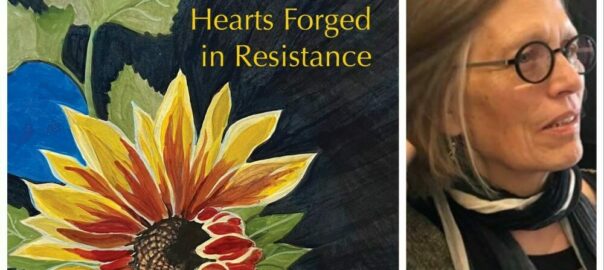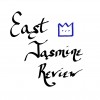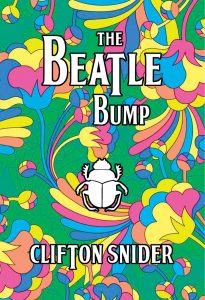Review: Hearts Forged in Resistance

Chella Courington meditates on profound personal moments and on arresting news tragedies in her latest chapbook, Hearts Forged in Resistance (Finishing Line Press, 2023). Her evocative work illuminates themes of womanhood, violence, hope, sorrow, and, of course, resistance.
The poem, “Resilience,” which discusses cancer, resonated strongly with me, as I lost my father last year to cancer and a cousin has been battling it for years. The lines “I feel it//how it might again pull at my nipple//and slip through my ribs” provide me with insight on what it must feel like to not only live through cancer, but to survive it. The poem’s gutting depiction helped me reflect on the profound emotional and physical challenges that come with confronting this disease.
Her poem, “Strength,” about Ukraine, contains the title of the collection as the last line. In this poem, Courington writes about buying sunflowers. In the act of arranging them in a vase, she is reminded of Ukraine, a country closely associated with sunflowers. The normally bright flowers change to represent a nation embroiled in a harrowing and ongoing conflict. Her simple handling of them becomes a weighty rumination on surviving through our tumultuous times.
I fully recommend this short collection of poems. Courington navigates the intricacies of the personal experience of the zeitgeist, intertwining themes of perseverance and the indomitable nature of resistance. Her language evokes a visceral response to life’s struggles and the never-ending doom-cycle of the news. Her words are a testament to the power of poetry in conveying profound understanding and powerful resistance to violence.
Hearts Forged In Resistance is available from Finishing Line Press now: https://www.finishinglinepress.com/product/hearts-forged-in-resistance-by-chella-courington/


